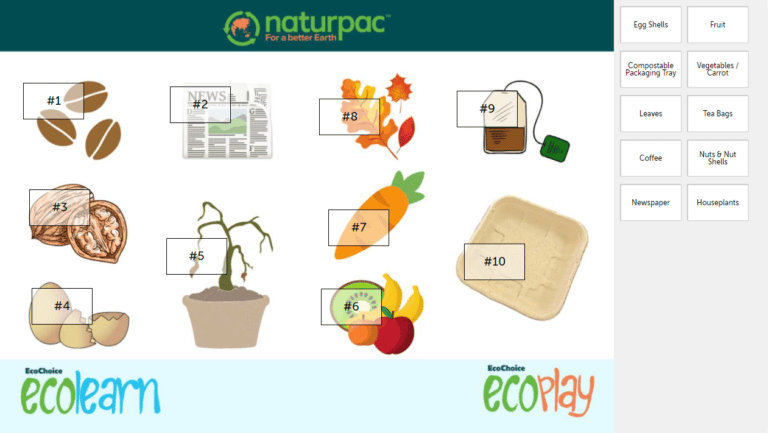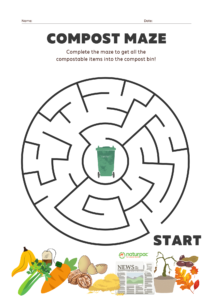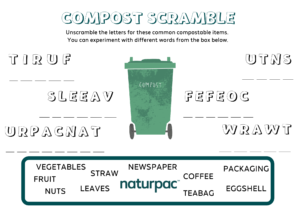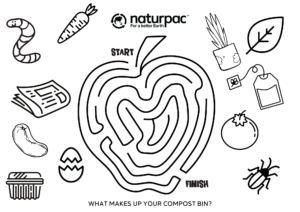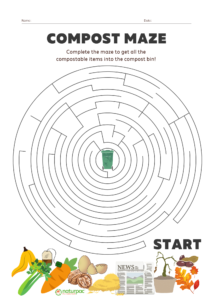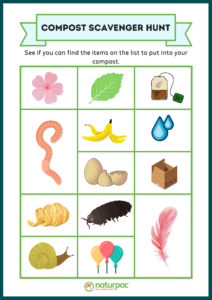Activity 4
Composting
INTRODUCTION
Learn about composting, the stages of composting and how to know what goes into a compost

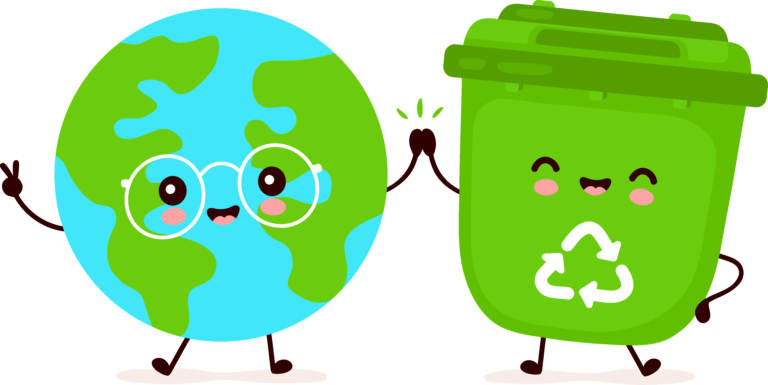
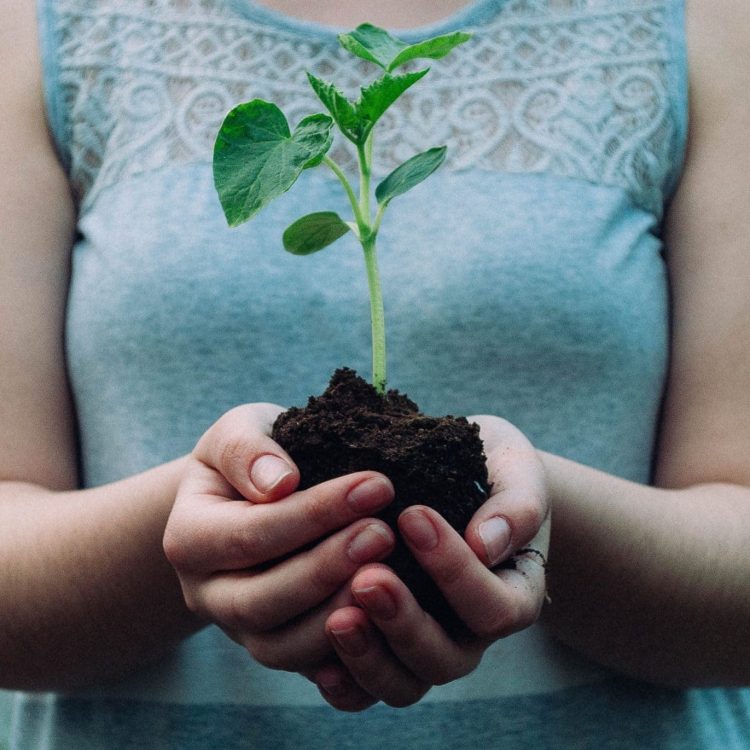

COMPOSTING
Composting is an easy way to turn our certain types of waste into usable material for your garden.
Mostly items that come from the kitchen and the food we eat, as well as green waste from the garden like fallen leaves can be combined to make Compost. However, there is some packaging that can be composted too.
In the right environment with some added help by worms and other bugs, these items break down naturally and make a natural plant food that can be used in the garden.
Composting is another sustainable way of giving us a healthier environment and creating less pollution.
WHAT YOU CAN COMPOST
- Fruits and vegetables
- Eggshells
- Coffee grounds and filters
- Approved fruit & vegetable packaging
- Tea bags
- Nut shells
- Shredded newspaper
- Cardboard
- Paper
- Grass clippings
- Houseplants
- Hay and straw
- Leaves
- Sawdust
- Wood chips
- Cotton and Wool Rags
- Hair and fur
- Fireplace ashes
WHAT YOU CAN'T COMPOST
Dairy products and eggs
(e.g. butter, milk, sour cream, yogurt)
They create odour problems and attract pests such as rodents and flies
Fats, grease, lard, or oils
They create odor problems and attract pests such as rodents and flies
Meat or fish bones and scraps
They create odor problems and attract pests such as rodents and flies
WHAT TO DO WITH COMPOST?
There are various ways to use your finished compost. You can sprinkle compost on top or mix it into your flower and vegetable beds, gently rake compost into tree beds, blend it with potting soil to revitalize indoor plants, or spread it on top of the soil on your lawn as a soil amendment.
WHAT IF I DON'T HAVE A BACKYARD
Bokashi and mini worm farms are an option for anyone living in an apartment, with a small backyard or without the option of a typical large compost bin.
Compost Challenge Game
Match the words with the compostable items
Compost over time
Watch this video to see how compost changes over time.

Congratulations!
You've completed the fourth set of activities and learned about composting.
educator resources
Click each of the items to download them for use in the classroom.
